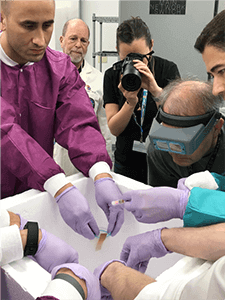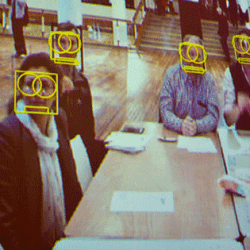Squirming in Orbit: NASA Sends Sperm to Space
The mission to enable the human race to procreate off Earth continues.
 This month NASA sent what might, at first, seem an unusual payload to the International Space Station (ISS): a selection of sperm, both human and bovine.
This month NASA sent what might, at first, seem an unusual payload to the International Space Station (ISS): a selection of sperm, both human and bovine.
But NASA’s Ames Research Center, which is behind experiment Micro-11, has a good, and perhaps an even noble explanation. According to a press release, the endeavor is part of an investigation that could be “the first step in understanding the potential viability of reproduction in reduced-gravity conditions.”
Measuring sperm squirming
In particular, Micro-11’s goal is to measure how microgravity affects a key part of human reproduction: the ability of sperm to successfully swim to and fertilize an egg.
So far previous experiments using sea urchin and bull sperm seem to indicate that being in orbit actually causes sperm to swim faster than on Earth. However, fertilization occurs more slowly, if it happens at all.
Frozen for shipment to the ISS, astronauts will then thaw out the samples and expose them to a chemical agent, which will cause the sperm to start squirming. The sperm’s speed will be measured with the help of microscopes hooked up to video equipment.
Birth in space
Space, as we have talked about previously, is far from hospitable to humans—and even less so for reproduction.
Beyond shielding against radiation, special exercise techniques to prevent bone loss, and even medications to increase the possibility of fertilization, there is also the idea of using robots as surrogate mothers.
Another hypothetical option to ensure reproduction in space is to genetically tweak future astronauts: boosting their reproductive systems in such a way as to give them better chances of having children on extremely long spaceflights.
Meanwhile, NASA is continuing to ship sperm to space, and with each experiment adding data toward a better understanding of human reproduction—and perhaps leading to the first human not born on our planet.
Image sources: The University of Kansas/Joseph Tash, NASA
Leave a reply
You must be logged in to post a comment.

















